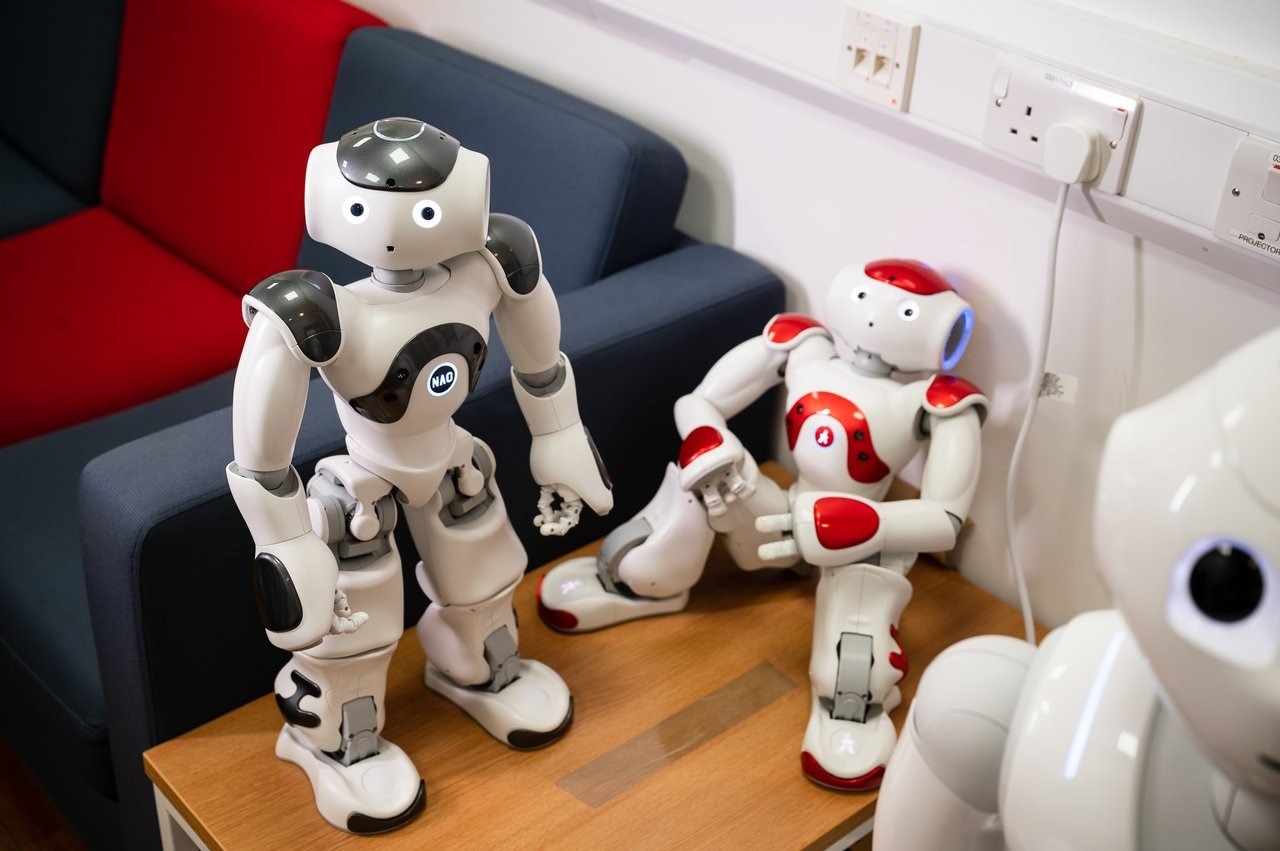A new specialized multidisciplinary center is being established at the University of Manchester to investigate advancements in smart robotics through the lens of autonomous machines and artificial intelligence (AI).

Robots take a break at a lab at The University of Manchester. Image Credit: Marketing Manchester
The University of Manchester’s engineering and materials facilities will house the Manchester Centre for Robotics and AI, which will act as an “interface between robotics, autonomy, and AI” and host cutting-edge research on AI-powered devices.
A large part of the University of Manchester’s current reputation for excellence in artificial intelligence and robotics stems from the legendary codebreaker Alan Turing, who started this field’s seminal thought leadership in Manchester.
Robotics and artificial intelligence (AI) were named by UK Chancellor Jeremy Hunt as the most important drivers for economies in the twenty-first century, which led to the establishment of the new Manchester center.
On Wednesday, November 23rd, 2022, the Manchester group held its first conference to commemorate the opening of the new robotics center. Applications of robotics in harsh environments were one of the topics covered.
Robots for safe work in nuclear-decommissioning sites in the UK have been developed over the past ten years by a specialized Manchester team led by Professor Barry Lennox.
Time Magazine has named Lyra, a revolutionary robot created by Professor Lennox’s team and recently used at the Dounreay site in Scotland, the “world’s deepest nuclear clean-up site,” as one of the top 200 innovations of 2022.
Foldable drones are also used in other advanced Manchester applications, such as characterizing underground mines or inspecting offshore wind turbines. Manchester also takes the lead in developing the verification technologies that will allow us to have confidence in these robots even when they are operating autonomously in risky situations.
The joint presentation by theologian Dr. Scott Midson and robotics expert Dr. Andy Weightman, which shed light on “posthumanism” and envisioned a future in which humans are not the only highly intelligent decision-makers, was a highlight of the conference.
Dr. Midson studies theological and philosophical critiques of posthumanism, and Dr. Weightman studies home-based rehabilitation robotics for people with neurological impairment.
Together, they discussed how interdisciplinary research can help with the unique challenges of rehabilitation robotics and, ultimately, what it means to be human “in the face of the promises and challenges of human enhancement through robotic and autonomous machines.”
At the conference, a number of robots and autonomous machines were on display for attendees to see.
Professor of Robotics and Machine Learning at Manchester, Angelo Cangelosi, claimed that the university has a leading position in the field of autonomous systems, which will play a significant role in the future of society.
We are delighted to host our inaugural conference which will provide a special showcase for our diverse academic expertise to design robotics for a variety of real-world applications.
Dr. Angelo Cangelosi, Professor, Machine Learning and Robotics, Department of Computer Science, The University of Manchester
Dr. Cangelosi stated, “Our research and innovation team are at the interface between robotics, autonomy and AI—and their knowledge is drawn from across the University\'s disciplines, including biological and medical sciences—as well the humanities and even theology. This rich diversity offers Manchester a distinctive approach to designing robots and autonomous systems for real world applications, especially when combined with our novel use of AI-based knowledge.”
The Center for Robotics and AI at the University of Manchester will seek to:
- Create control systems that emphasize bio-inspired mechatronics solutions, such as using biomimetic robot platforms, sensors, and actuators
- Create novel software engineering and AI verification methodologies with the goal of creating reliable autonomous systems
- Study the interaction between humans and robots with a novel emphasis on the use of brain-inspired methods for robot control, learning, and interaction; and
- Understand the effects of using robots and autonomous systems on people and society, and research the ethics and human-centered robotics issues